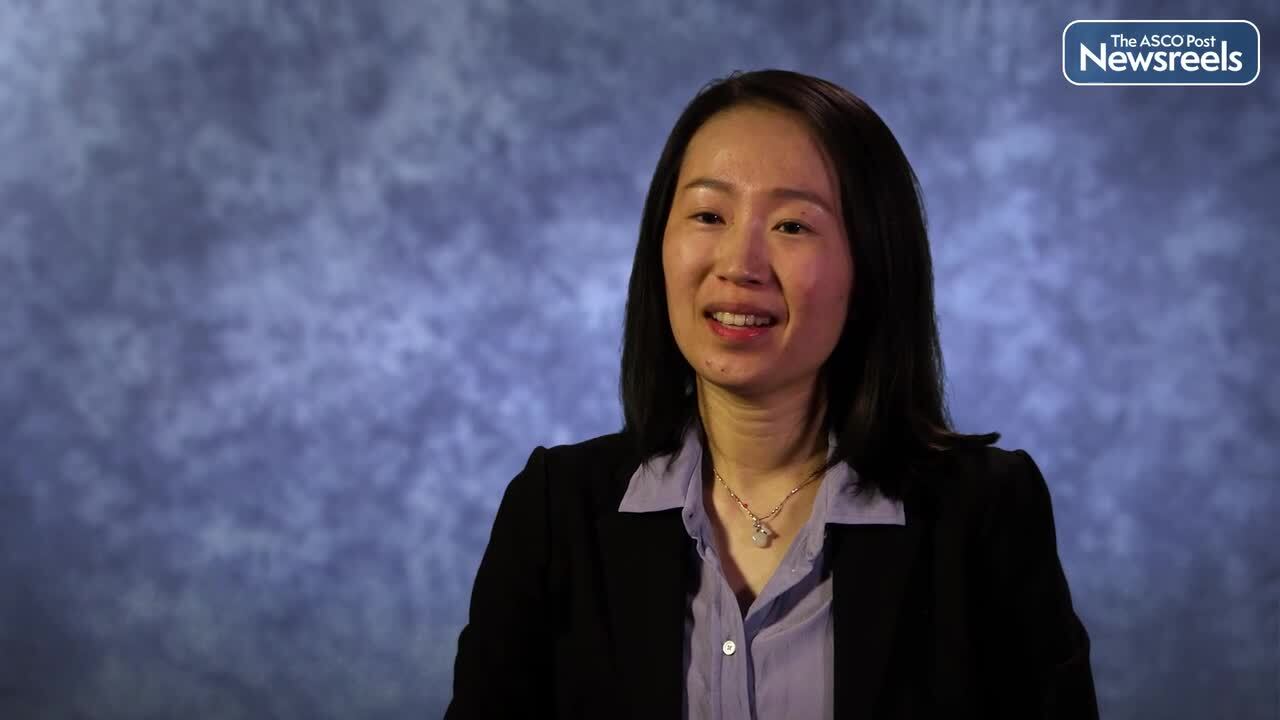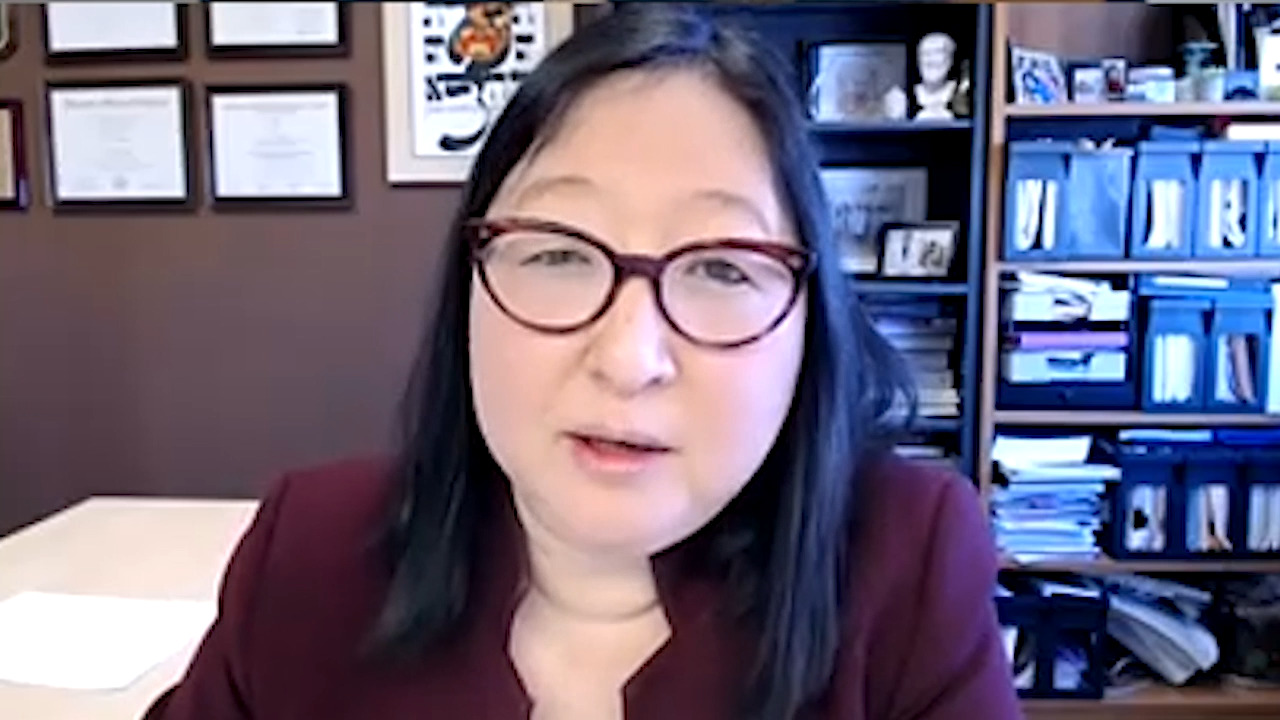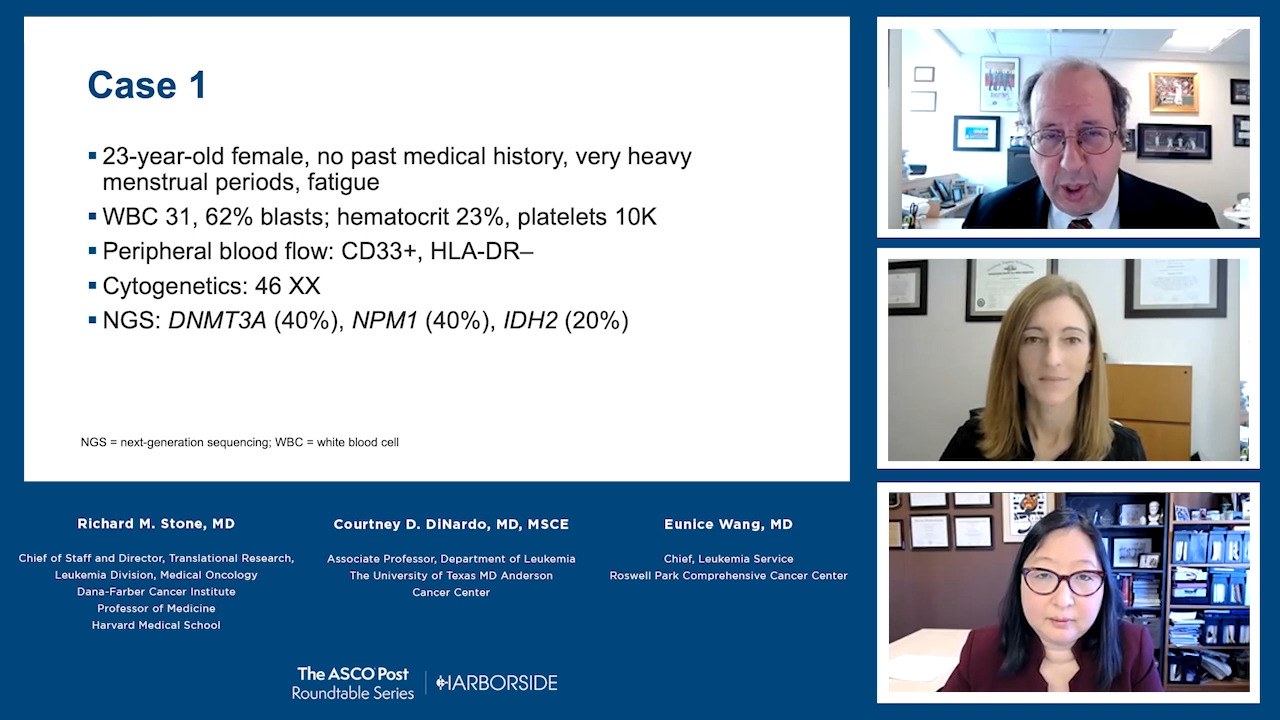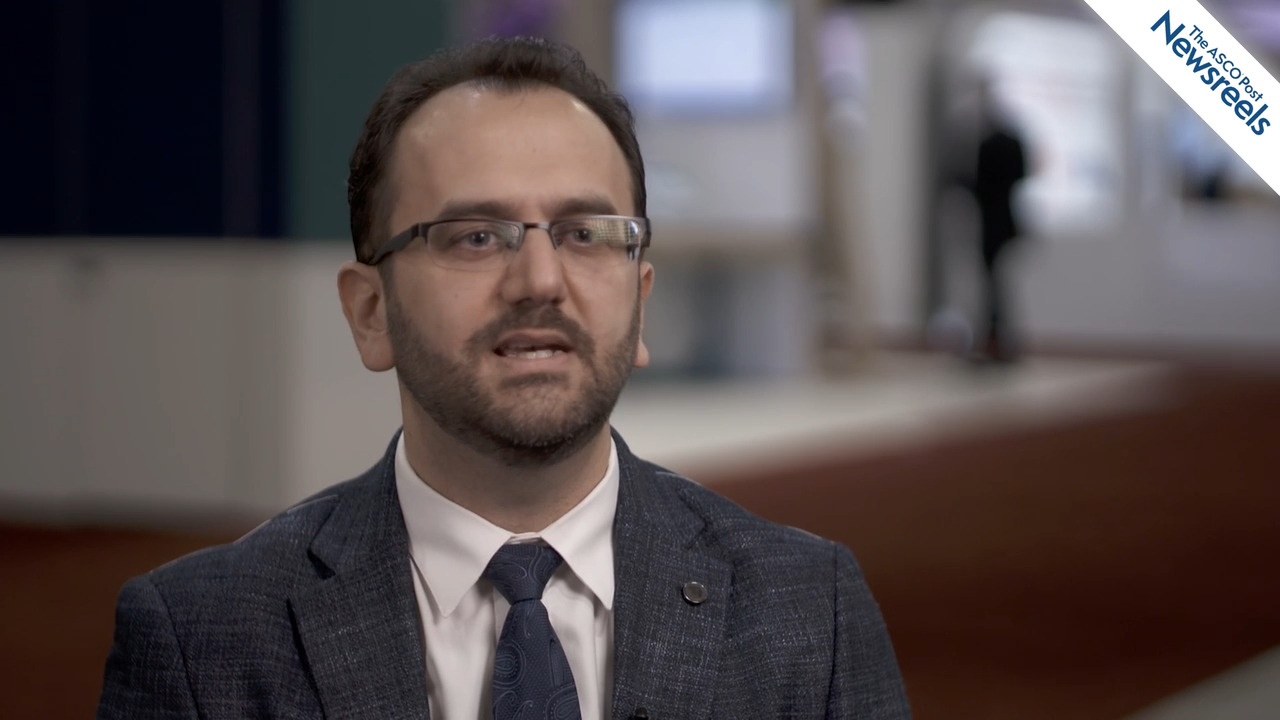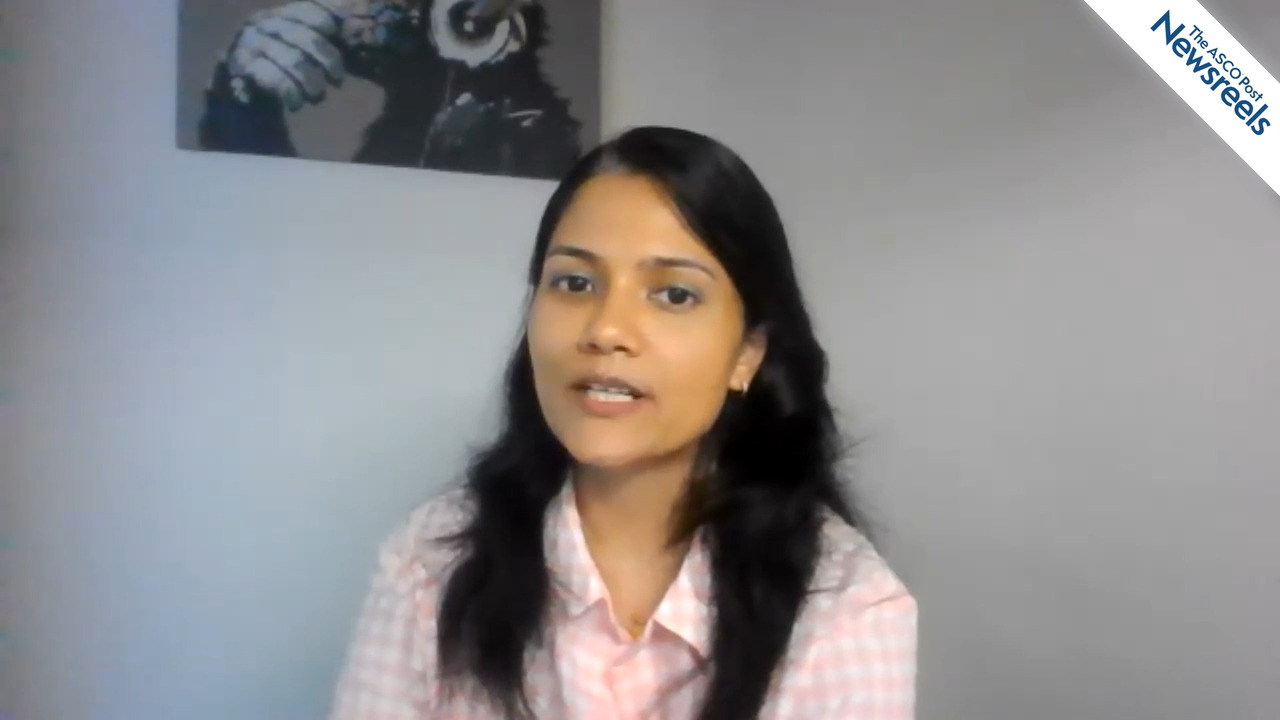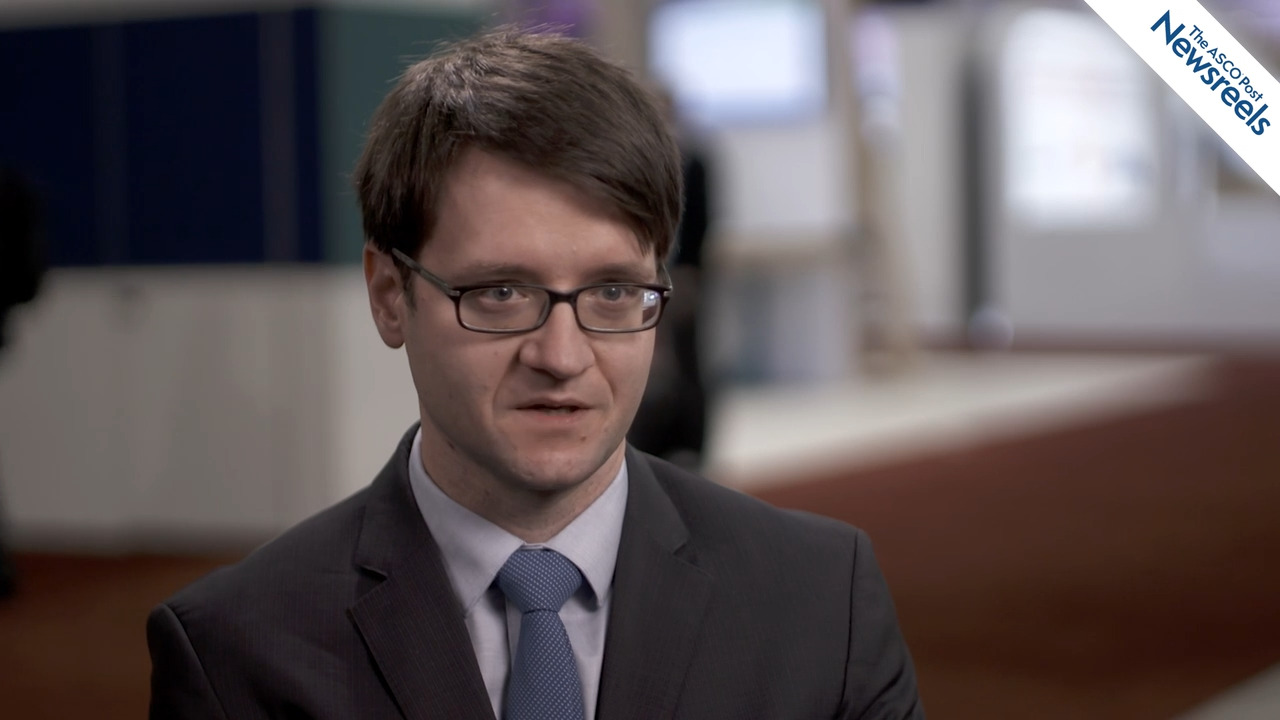AYA Leukemia Survivors Have Higher Mortality Rates Than the General Population
Although considered a rare occurrence in adolescents and young adults (AYAs), aged 15 to 39 years, the incidence of cancer in this age group has been increasing by approximately 30% since the 1970s. This year, it is estimated that nearly 90,000 new cases of cancer will be diagnosed in this...
Prevalence of Plasma Cell and Lymphoproliferative Disorders in Relatives of Probands With Light Chain Amyloidosis
In a study reported in the British Journal of Haematology, Staron et al found that the prevalence of plasma cell and lymphoproliferative disorders among blood relatives of probands with light chain (AL) amyloidosis was low overall and varied according to proband AL amyloidosis subtype. Despite...
Rehospitalization and Emergency Department Visits After CAR T-Cell Therapy in Commercially Insured Patients With Cancer
In a single-institution study reported in a research letter in JAMA Oncology, Kenzik et al found substantial rates of rehospitalization and emergency department visits after chimeric antigen receptor (CAR) T-cell therapy among commercially insured patients with cancer. Study Details The study...
Hematologic Oncology 2021–2022 Almanac
Ongoing evaluation of novel, targeted, and immunotherapies has led to exciting advances across the array of hematologic malignancies over the past year. The availability of new treatment options, along with emerging data on novel combinations and sequencing approaches, is rapidly changing...
Improved Outcomes With Time-Limited Venetoclax Combinations vs Chemoimmunotherapy in Fit Patients With CLL
Administering time-limitedcombination regimens of venetoclax plus obinutuzumab or venetoclax plus obinutuzumab and ibrutinib was superior to chemoimmunotherapy in achieving undetectable measurable residual disease (MRD) in the peripheral blood at month 15 in fit patients with chronic lymphocytic...
Expert Point of View: Joshua Brody, MD
Joshua Brody, MD, Director of the CLL/Lymphoma Immunotherapy Program, Icahn School of Medicine at Mount Sinai, New York, who was not involved in these trials, commented: “CLL is an extremely prevalent disease affecting nearly 200,000 patients in the United States. Most patient do not require...
Fixed-Duration Venetoclax Plus Ibrutinib Achieves Deep and Durable MRD Remissions in CLL
Two different trials presented at the 2021 American Society of Hematology (ASH) Annual Meeting & Exposition found that fixed-duration treatment with ibrutinib and venetoclax achieved deep and sustained undetectable measurable residual disease (MRD) status when used as first-line therapy for...
Zanubrutinib Superior to Ibrutinib for CLL/SLL in Phase III ALPINE Trial
Zanubrutinib, a second-generation Bruton’s tyrosine kinase (BTK) inhibitor, significantly improved response rates and delayed disease progression as compared with the standard of care, ibrutinib, in patients with relapsed or refractory chronic lymphocytic leukemia or small lymphocytic lymphoma...
ELEVATE-RR Trial: Acalabrutinib as Effective as Ibrutinib, With Fewer Cardiac Effects, in Resistant CLL
Acalabrutinib was equally efficacious with less toxicity when compared directly with ibrutinib in patients with previously treated relapsed or refractory chronic lymphocytic leukemia (CLL), according to the results of an open-label, randomized, noninferiority phase III trial presented at the 2021...
Addition of Ivosidenib to Azacitidine in Newly Diagnosed IDH1-Mutated Acute Myeloid Leukemia
In the phase III AGILE trial reported in The New England Journal of Medicine, Montesinos et al found that the addition of ivosidenib to azacitidine in induction therapy significantly prolonged event-free survival in patients with newly diagnosed IDH1-mutated acute myeloid leukemia. An overall...
AML Study Shows Benefit of CPX-351 vs Hypomethylating Agent Plus Venetoclax in Subgroup of Older Adults
For older patients with acute myeloid leukemia (AML), front-line treatment with liposomal daunorubicin/cytarabine (CPX-351) appears to be equivalent to treatment with a hypomethylating agent plus venetoclax, according to data presented at the 2021 American Society of Hematology (ASH) Annual Meeting ...
Patients With ALL and Certain Gene Regulation Patterns May Be Less Likely to Respond to CAR T-Cell Therapy
Acute lymphoblastic leukemia (ALL) cells from patients whose cancers did not respond to CD19-targeted chimeric antigen receptor (CAR) T-cell therapy had gene regulation signatures that could potentially facilitate treatment resistance, according to results presented at the American Association for...
Study Examines Disparities in Relapse Among Pediatric Patients With ALL
According to a large multiethnic study presented by Sok et al at the American Association for Cancer Research (AACR) Annual Meeting 2022, Latinx children with acute lymphoblastic leukemia (ALL) and measurable residual disease (MRD)-negative status were more likely to relapse compared with...
Yaqi Zhao, MSc, on ALL: Molecular Profile and Efficacy of Inotuzumab Ozogamicin
Yaqi Zhao, MSc, of St. Jude Children’s Research Hospital, discusses findings from the phase III INO-VATE trial, which showed that inotuzumab ozogamicin reduced the signs and symptoms of acute lymphoblastic leukemia associated with a variety of gene and chromosome changes. Future studies may confirm which patients are more likely to benefit from this agent (Abstract CT027).
Addition of Sorafenib to Standard Chemotherapy in Pediatric Patients With High Allelic Ratio FLT3-ITD–Positive AML
In an analysis from the Children’s Oncology Group protocol AAML1013 reported in the Journal of Clinical Oncology, Pollard et al found that the addition of sorafenib to standard chemotherapy may benefit pediatric patients with high allelic ratio FLT3-ITD–positive acute myeloid leukemia (AML). Study...
Therapy Options for MRD-Positive AML
In this video, Drs. Richard Stone, Courtney DiNardo, and Eunice Wang discuss therapy options for minimal residual disease (MRD)-positive acute myeloid leukemia (AML). The case is a 44-year-old man with no past medical history who presents with fevers and fatigue. He is diagnosed with AML and achieves morphologic remission after treatment with 7+3 (cytarabine/daunorubicin) plus gemtuzumab; however MRD flow cytometry reveals 0.1% blasts, which persists after consolidation with high-dose cytarabine. The faculty discuss how they would approach the next steps for this patient and the importance of reducing the disease burden prior to the initiation of allogeneic stem cell transplant.
Therapy Options for Primary Refractory FLT3-ITD–Positive AML
In this video, Drs. Richard Stone, Courtney DiNardo, and Eunice Wang treatment options for primary refractory FLT3-ITD–positive acute myeloid leukemia (AML). The case is a 60-year-old man with a history of hypertension and hyperlipidemia who presents with fatigue. He is diagnosed with FLT3-ITD–positive AML and is enrolled in a clinical trial where he receives 7+3 (cytarabine/daunorubicin) and midostaurin; after achieving complete remission, his disease eventually recurs. The faculty discuss potential treatment options for this patient, such as FLAG-IDA-VEN and gilteritinib both alone and in combination.
Induction Therapy for an Older Patient With IDH1-Mutant AML
In this video, Drs. Richard Stone, Courtney DiNardo, and Eunice Wang discuss the management of newly diagnosed older patients with acute myeloid leukemia (AML). The case is a 75-year-old woman with no past medical history who presents with fever and bone pain. She is diagnosed with AML, and next-generation sequencing reveals a mutation in IDH1, among others. The faculty discuss the potential choices for induction therapy in older patients such as this, debating the merits of intensive chemotherapy vs lower-intensity options such as azacitidine/venetoclax and azacitidine/ivosidenib.
Induction Therapy for a Young Patient With AML
This is Part 1 of Updates in Acute Myeloid Leukemia, a four-part video roundtable series. Scroll down to watch the other videos from this Roundtable. In this video, Drs. Richard Stone, Courtney DiNardo, and Eunice Wang discuss the management of newly diagnosed younger patients with acute myeloid leukemia (AML). The case is a 23-year-old woman with no past medical history who presents with very heavy menstrual periods and fatigue, and is diagnosed with AML with key mutations found in DNMT3A, NPM1, and IDH2. The faculty discuss the evolution of induction therapy options for younger patients with AML, as oncologists move from standard 7+3 (cytarabine/daunorubicin) chemotherapy to more personalized approaches.
Allogeneic Transplantation for Hematologic Neoplasms in Adults
“The value of experience is not in seeing much, but in seeing wisely.” —Sir William Osler To complement The ASCO Post’s continued comprehensive coverage of the 2021 American Society of Hematology (ASH) Annual Meeting & Exposition, here are several abstracts selected from the meeting...
Addition of Bortezomib to Chemotherapy in Newly Diagnosed T-Cell Acute Lymphoblastic Leukemia and Lymphoma
As reported in the Journal of Clinical Oncology by Teachey et al, the phase III Children’s Oncology Group AALL1231 trial has shown that the addition of bortezomib to a modified augmented Berlin-Frankfurt-Münster (BFM) backbone improved survival outcomes in patients with newly diagnosed T-cell...
Study Shows Structural Racism May Contribute to Poorer Outcomes in Black and Hispanic Patients With Leukemia
Black and Hispanic people with acute myeloid leukemia (AML) in the greater Chicago area were more likely to die from the disease than their non-Hispanic White counterparts, with a 59% and 25% greater risk, respectively, according to a new study led by University of Illinois Chicago researchers. In...
Mutations Associated With Resistance to Noncovalent BTK Inhibitors in Patients With CLL
In a study reported in The New England Journal of Medicine, Wang et al identified mutations that conferred resistance to noncovalent Bruton’s tyrosine kinase (BTK) inhibitors in patients with chronic lymphocytic leukemia (CLL) and found that some also conferred resistance to covalent BTK...
Study Identifies New Mutation That May Define Novel Pediatric AML Subtype
A new mutation was identified in 9% of relapsed cases of pediatric acute myeloid leukemia (AML) that may define a new subtype of the disease, according to a study published by Umeda et al in Blood Cancer Discovery. The mutation is a tandem duplication (a series of adjacent repeats of a DNA...
First-Line Blinatumomab and POMP Maintenance in Older Patients With Philadelphia Chromosome–Negative B-Cell ALL
In the phase II SWOG 1318 trial reported in the Journal of Clinical Oncology, Advani et al found that blinatumomab induction and consolidation followed by maintenance with POMP (prednisone, vincristine, mercaptopurine, and methotrexate) produced good outcomes in patients aged ≥ 65 years with newly...
Improved Outcomes With Time-Limited Venetoclax Combinations vs Chemoimmunotherapy in Fit Patients With CLL
Administering time-limitedcombination regimens of venetoclax plus obinutuzumab or venetoclax plus obinutuzumab and ibrutinib was superior to chemoimmunotherapy in achieving undetectable measurable residual disease (MRD) in the peripheral blood at month 15 in fit patients with chronic lymphocytic...
AGILE: Addition of Ivosidenib to Azacitidine Triples Median Overall Survival in Difficult-to-Treat AML Population
In patients with newly diagnosed acute myeloid leukemia (AML) with an IDH1 mutation who were ineligible for intensive chemotherapy, the addition of the IDH1 inhibitor ivosidenib to azacitidine significantly improved survival vs azacitidine alone, according to data presented at the 2021 American...
Fixed-Duration Venetoclax Plus Ibrutinib Achieves Deep and Durable MRD Remissions in CLL
Two different trials presented at the 2021 American Society of Hematology (ASH) Annual Meeting & Exposition found that fixed-duration treatment with ibrutinib and venetoclax achieved deep and sustained undetectable measurable residual disease (MRD) status when used as first-line therapy for...
Improved Outcomes With Time-Limited Venetoclax Combinations vs Chemoimmunotherapy in Fit Patients with CLL
Administering time-limited regimens that were combinations of venetoclax plus obinutuzumab or venetoclax plus obinutuzumab and ibrutinib was superior to chemoimmunotherapy in achieving undetectable measurable residual disease in the peripheral blood at month 15 in fit patients with chronic...
Report Documents Third Known Case of HIV Remission Involving Stem Cell Transplant
A woman with human immunodeficiency virus (HIV) who received a cord blood stem cell transplant to treat acute myeloid leukemia has had no detectable levels of HIV for 14 months, despite cessation of antiretroviral therapy, according to research presented at the Conference on Retroviruses and...
After Two Cancer Diagnoses, I’m Grateful for Another Day
The start of January 2014 was filled with excitement. I was undergoing fertility treatments to have a second child and was living my professional dream. I was a network news anchor and medical news reporter for a national broadcast network. Although I was exhausted from my grueling early morning...
Expert Point of View: Joshua Brody, MD
Joshua Brody, MD, Director of the CLL/Lymphoma Immunotherapy Program, Icahn School of Medicine at Mount Sinai, New York, who was not involved in these trials, commented: “CLL is an extremely prevalent disease affecting nearly 200,000 patients in the United States. Most patient do not require...
Fixed-Duration Venetoclax Plus Ibrutinib Achieves Deep and Durable MRD Remissions in CLL
Two different trials presented at the 2021 American Society of Hematology (ASH) Annual Meeting & Exposition found that fixed-duration treatment with ibrutinib and venetoclax achieved deep and sustained undetectable measurable residual disease (MRD) status when used as first-line therapy for...
Expert Point of View: Hanno R. Hock, MD, PhD
In an interview with The ASCO Post, Hanno R. Hock, MD, PhD, Assistant Professor of Medicine at Harvard Medical School and Massachusetts General Hospital, highlighted the study’s “very nice response rate” and “encouraging data” while also noting that a pediatric-based treatment regimen in fit adults ...
Study Finds Pediatric-Based Treatment Regimen Feasible and Effective in Older Adults With ALL
A pediatric-based protocol has delivered promising preliminary results in adults with acute lymphoblastic leukemia (ALL) and lymphoblastic lymphoma (LBL), according to data presented at the 2021 American Society of Hematology (ASH) Annual Meeting & Exposition.1 Findings from the large,...
Use of Polygenic Cytarabine Response Score to Identify Candidates With Pediatric AML for Chemotherapy Augmentation
In a study reported in the Journal of Clinical Oncology, Elsayed et al developed a risk score based on single nucleotide polymorphisms (SNPs) associated with cytarabine pharmacodynamics or clinical outcomes that identified pediatric patients with acute myeloid leukemia (AML) who could benefit from...
New Study Examines Role of Genetic Ancestry in Pediatric Leukemia
Scientists at St. Jude Children’s Research Hospital are studying the impact of genetic ancestry on childhood acute lymphoblastic leukemia (ALL). The scientists assembled an international cohort to determine how genetic ancestry affects leukemia biology and outcomes for modern therapy; they found...
Matthew S. Davids, MD, on Younger Patients With CLL: Ibrutinib Plus Fludarabine, Cyclophosphamide, and Rituximab as Initial Therapy
Matthew S. Davids, MD, of Dana-Farber Cancer Institute, discusses phase II results from a multicenter study that showed the efficacy of ibrutinib plus fludarabine, cyclophosphamide, and rituximab in younger, fit patients with chronic lymphocytic leukemia who desire the possibility of a functional cure with time-limited therapy (Abstract 640).
Rituximab Plus Chemotherapy for Pediatric Mature B-Cell Non-Hodgkin Lymphoma and Mature B-Cell Acute Leukemia
On December 2, 2021, rituximab was approved for use in combination with chemotherapy for pediatric patients (≥ 6 months to 18 years) with previously untreated, advanced-stage, CD20-positive diffuse large B-cell lymphoma, Burkitt lymphoma, Burkitt-like lymphoma, or mature B-cell acute leukemia.1...
Inotuzumab Ozogamicin for Pediatric Patients With Relapsed or Refractory B-Cell ALL
In a phase II trial (Children’s Oncology Group AALL1621) reported in the Journal of Clinical Oncology, O’Brien et al found that inotuzumab ozogamicin produced a high response rate in children and adolescents with relapsed or refractory B-cell acute lymphoblastic leukemia (ALL). Study Details In the ...
Study Finds Improved 2-Year Survival Rate for Adult Patients With Relapsed Philadelphia Chromosome–Positive ALL After Allogeneic Hematopoietic Cell Transplantation Over 20 Years
A retrospective, registry-based multicenter study by Bazarbachi et al published in Clinical Cancer Research evaluated clinical outcomes in patients with relapsed Philadelphia chromosome–positive (Ph+) acute lymphoblastic leukemia (ALL) after allogeneic hematopoietic cell transplantation over a...
AGILE Study: Addition of Ivosidenib to Azacitidine Triples Median Overall Survival in Difficult-to-Treat AML Population
In patients with newly diagnosed acute myeloid leukemia (AML) with an IDH1 mutation who were ineligible for intensive chemotherapy, the addition of the IDH1 inhibitor ivosidenib to azacitidine significantly improved survival vs azacitidine alone, according to data presented at the 2021 American...
Incidence of Chronic Graft-vs-Host Disease: Effect of Depleting Naive T Cells From Peripheral Blood Stem Cell Allografts in Patients With Leukemia
Although allogeneic hematopoietic cell transplantation can result in a cure for patients with advanced hematologic malignancies, studies show chronic graft-vs-host disease occurs in 30% to 60% of patients receiving unmanipulated grafts, often requires prolonged immunosuppression, and may cause...
Musa Yilmaz, MD, on FLT3-ITD–Mutated AML: Findings on Quizartinib With Decitabine and Venetoclax
Musa Yilmaz, MD, of The University of Texas MD Anderson Cancer Center, discusses study results suggesting that quizartinib with decitabine and venetoclax is active in patients with FLT3-ITD–mutated acute myeloid leukemia and that RAS/MAPK mutations continue to drive primary and secondary resistance (Abstract 370).
Pretreatment Disease Burden and Outcomes With Commercial Tisagenlecleucel in Pediatric/Young Adult B-Cell ALL
In an analysis from the Pediatric Real-World Chimeric Antigen Receptor Consortium reported in the Journal of Clinical Oncology, Schultz et al found that pretreatment high disease burden was associated with poorer outcomes in pediatric and young adult patients who received commercial...
Association of Response Rate and Event-Free Survival With Overall Survival in Newly Diagnosed AML: FDA Analysis
In a trial-level analysis of randomized studies submitted to the U.S. Food and Drug Administration (FDA) reported in the Journal of Clinical Oncology, Norsworthy et al found that complete remission rate was moderately correlated, and event-free survival was strongly correlated, with overall...
Sangeetha Venugopal, MD, on Secondary AML: Impact of Front-Line Treatment Approach
Sangeetha Venugopal, MD, of The University of Texas MD Anderson Cancer Center, discusses a retrospective analysis of 562 patients with treated secondary acute myeloid leukemia and prior exposure to hypomethylating agents (HMAs). The results showed that an HMA plus venetoclax yielded significantly higher overall response rates and improved overall survival compared with intensive chemotherapy or low-intensity chemotherapy, particularly in patients 60 years or older who had a karyotype without adverse risk (Abstract 794).
Andrew Matthews, MD, on AML: CPX-351 vs Venetoclax/Azacitidine for Initial Therapy
Andrew Matthews, MD, of the Abramson Cancer Center, University of Pennsylvania, discusses findings from a retrospective study at an academic institution, which showed there was no statistically significant difference in overall survival between induction with CPX-351 and venetoclax/azacitidine for adults with acute myeloid leukemia. Prospective studies to confirm similar effectiveness with careful attention to side effects, quality of life, and impact on transplant outcomes may help clinicians decide between these therapies (Abstract 795).
Association of MRD Response and Prognosis in Patients With AML Treated With Venetoclax and Azacitidine
�In an analysis from the phase III VIALE-A study reported in the Journal of Clinical Oncology, Keith W. Pratz, MD, and colleagues found that among treatment-naive patients with acute myeloid leukemia (AML) who experienced complete remission after receiving treatment with venetoclax/azacitidine,...
Expert Point of View: Krish Patel, MD
Krish Patel, MD, Director of the Lymphoma Program at the Swedish Cancer Institute in Seattle and Interim Director of the Hematological Malignancies and Cellular Therapy Program, commented on the implications of Dr. Soumerai’s presentation. “We know that, in general, reaching [undetectable...
